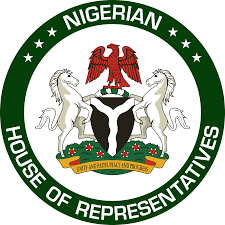In a bold move this Sunday, July 13, 2025, the House of Representatives’ Constitution Review Committee tabled a constitutional amendment proposal that seeks to remove the President’s authority to appoint the Chairman of the Independent National Electoral Commission (INEC). If passed, the selection would be shifted to the National Judicial Council (NJC), a change aimed at deepening the commission’s impartiality and credibility
The proposed amendments echo long-standing recommendations from the 2007 Electoral Reform Committee, led by the late Chief Justice Muhammadu Uwais. Back then, the committee urged that INEC appointments and funding be insulated from executive control: appointments should rest with the NJC, and funding should be a first-charge on the Consolidated Revenue Fund
. The amendment under consideration aligns with that vision.
Former INEC Chairman Professor Attahiru Jega welcomed the initiative as a significant step forward, noting that it would shield the commission from political manipulation and dispel the perception that “he who pays the piper dictates the tune”
. Civil society organisations, including Samson Itodo of Yiaga Africa, also lauded the proposal. However, they urged caution, questioning whether the NJC itself is sufficiently nonpartisan and suggesting the inclusion of a multi‑stakeholder committee followed by Senate confirmation to strengthen legitimacy
Auwal Rafsanjani, Executive Director of the Civil Society Legislative Advocacy Centre, believes involving the NJC could help restore public confidence in the judiciary, as many Nigerians currently suspect the branch is compromised
. Yet constitutional lawyer Abdul Mahmud warned that entrusting appointment power to the NJC—dominated by senior judicial figures—might simply relocate, rather than root out, influence and opacity
Women Arise founder Joe Okei‑Odumakin echoed doubts, highlighting that NJC recommendations to this point have been advisory, not binding. She expressed hope, however, that legislative reform would enshrine integrity as a non‑negotiable standard for INEC leadership .
Public affairs analyst Jackson Ojo described the initiative as “a move in the right direction,” but warned it could fail unless the NJC itself becomes immune to political interference .
Meanwhile, civil society groups have intensified calls for a broader reform package ahead of the 2027 elections. They urge that the appointment powers of the President over INEC—including Resident Electoral Commissioners—be repealed outright and subsumed by a non‑partisan, transparent process overseen by a judicial or multi‑stakeholder body . Advocates also want INEC to adopt recommendations from the Uwais report, implement electronic voting and result transmission, and operate under an independent, publicly‑accessible institution to prosecute election offences .
If adopted, these reforms would mark a watershed in Nigeria’s democratic evolution—potentially insulating the electoral process from political meddling and reinforcing the system of checks

